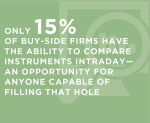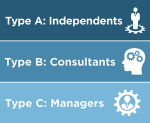Institutional Investors Forgoing Alpha Through Lack of Systematic Instrument Selection
April 19, 2018
Institutional investors are leaving money on the table by using familiar investment vehicles like bonds without first looking to see if they could obtain the same exposure more efficiently with another product like an ETF or a future.










